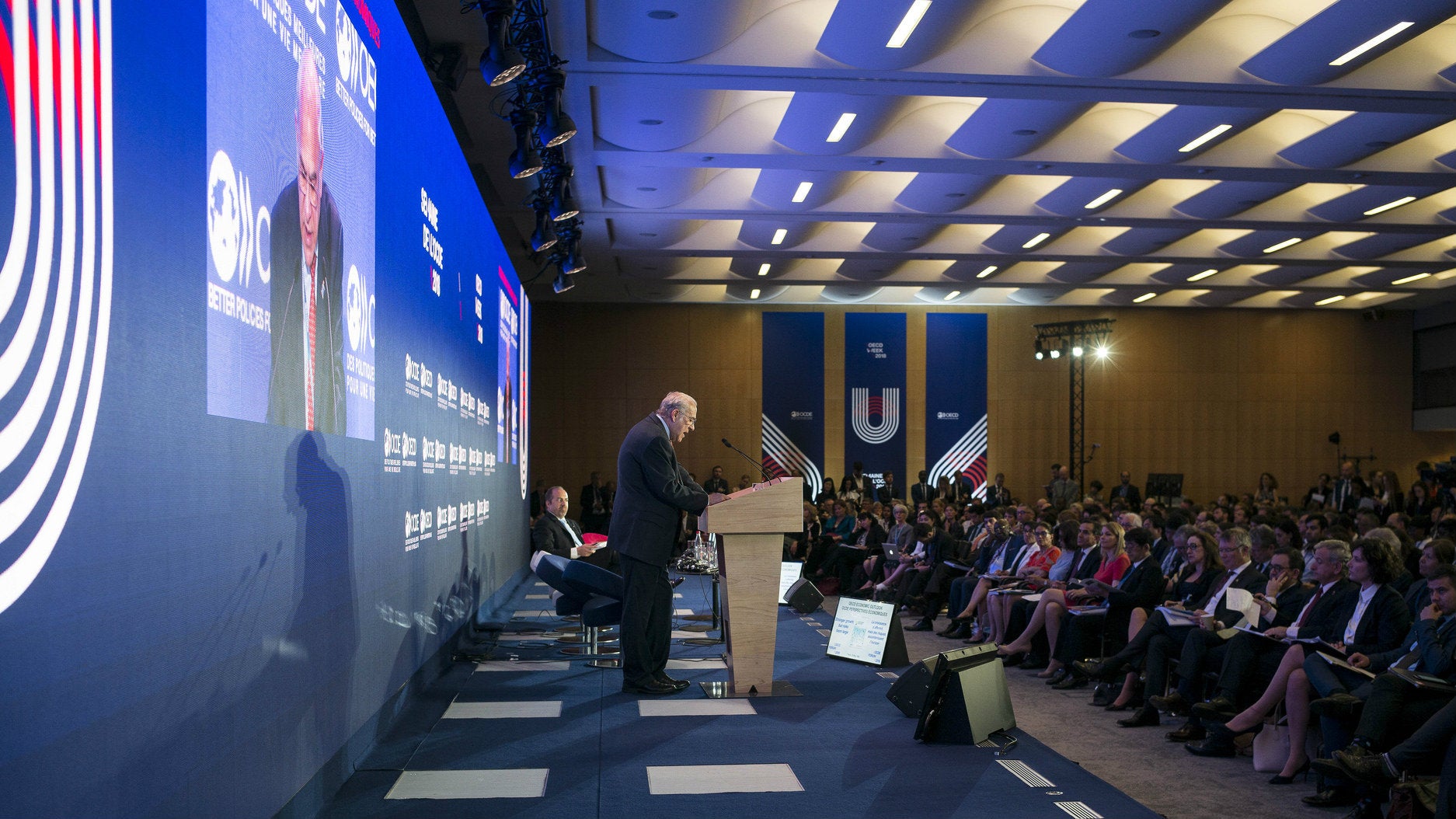The rich and powerful are now just as pessimistic about the future as everyone else
Paris


Paris
This week, around 3,000 diplomats, policymakers, and assorted power brokers meet for the OECD Forum, an annual ministerial meeting in Paris. Under the aegis of the club for rich countries, declarations are made, trade talks are held, and the multilateral world order is promoted. The latter was a theme of French president Emmanuel Macron’s address to the forum today.
In short, the gathering is a representative sample of the elites currently under siege by the nationalist, populist, anti-establishment forces gathering strength around the world. It seems they are feeling the pressure: The Pew Research Center surveyed 269 forum attendees—Pew dubs them “thought leaders”—and found them in a downbeat mood.
Only 42% of forum goers said that when children in their country grow up, they will be better off financially than their parents. When compared to results of a Pew survey of the general public in 19 OECD countries last year, a roughly equal share of bigwigs and ordinary citizens think that their kids will be worse off than themselves.
Typically, the rich and powerful tell pollsters they are more confident than everybody else, according to surveys by other groups. “If even these thought leaders are pessimistic, then the challenges we face ahead may be even more profound than we thought,” says Bruce Stokes, Pew’s director of global economic attitudes.
Notably, there is a significant gender disparity in elite opinion, as measured by Pew. Just under half of men attending the OECD jamboree, 48%, think that kids in their country will be better off financially than their parents when they grow up. A much smaller share of women, 33%, feel the same. (Pew doesn’t track gender differences in results for surveys of the general public.)
The same goes for opinions about the present—55% of OECD Forum attendees say that life today is better than 20 years ago for people in their home country, but the details reveal that 61% of men believe that things are better now, versus only 44% of women.